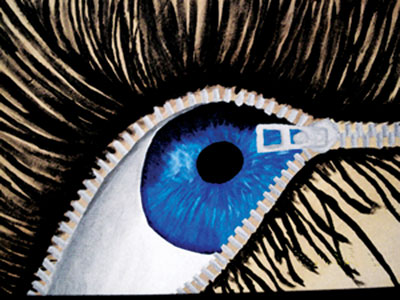All Nonfiction
- Bullying
- Books
- Academic
- Author Interviews
- Celebrity interviews
- College Articles
- College Essays
- Educator of the Year
- Heroes
- Interviews
- Memoir
- Personal Experience
- Sports
- Travel & Culture
All Opinions
- Bullying
- Current Events / Politics
- Discrimination
- Drugs / Alcohol / Smoking
- Entertainment / Celebrities
- Environment
- Love / Relationships
- Movies / Music / TV
- Pop Culture / Trends
- School / College
- Social Issues / Civics
- Spirituality / Religion
- Sports / Hobbies
All Hot Topics
- Bullying
- Community Service
- Environment
- Health
- Letters to the Editor
- Pride & Prejudice
- What Matters
- Back
Summer Guide
- Program Links
- Program Reviews
- Back
College Guide
- College Links
- College Reviews
- College Essays
- College Articles
- Back
The Final Frontier...Our Genes?
Sniffling, coughing, wheezing, running nose, pounding head, achy chills: everyone knows the misery of sickness. After raiding the Wal-Mart medicine aisles, it just might be time to see a doctor. After making the dreaded phone call, suffering through the car ride, and sitting amongst the germy battlefield of the waiting room, your name is called.
“John Smith! Oh yes, hello. How are you today?”
“Um, lady, I feel like I’m about to die. I wouldn’t drag myself here otherwise.”
“Well, that’s nice. The doctor will be with you in a minute.”
And now the waiting…the eternal waiting. Finally Dr. Fancy-Pants makes his grand entrance and takes one look at you- it’s 500 milligrams of Amoxiclav for you, young man. So you march, well, hobble off to the pharmacy to fill your prescription. Three hours later, when you’re at home leaning your head against your hand in agony, you swallow your horse pill and go to bed.
Nigh every individual can sympathize with the woe of illness. It is just plain no fun. But what if doctors could tell beforehand what illnesses were likely to plague you? Would that not make winter a much more enjoyable season? Well, good news, dear Reader. Thanks to the Human Genome Project completed in 2003, several medical professionals are taking great strides in this direction. Dr. Murphy of Greenwich, Connecticut, is one such man. He estimates that, although only ten percent of modern physicians feel properly trained in the area of using a patient’s genes to predict their medical future, within the next generation, there will be a rapid increase in the use of such practices. From a patient’s perspective, the initial gene testing may be a bit pricy, but with its history of saving lives, doctors urge patients to participate in gene-mapping.
In an effort to aid physicians in their quest to learn more about gene mapping, the brilliant man Dr. Scripps has cofounded a short-term accreditation course designed to bring light to the little known facts about genes. His hopes are that the College of Genomic Medicine will see rapid enrollment numbers in the course.
But, dear Reader, how does this affect you and me? Medical persons estimate that within a short time, genomics will gain wide popularity and outstanding results. Perhaps in the future you and I will be able to map our genes so that we may know the possible ups and downs of our medical future and susceptibilities born to us from our parents. This will aid in prevention methods for diseases ranging from Alzheimer’s to conditions such as weight gain.
Isn’t science amazing?

Similar Articles
JOIN THE DISCUSSION
This article has 0 comments.
